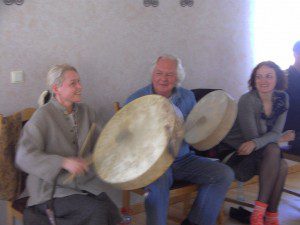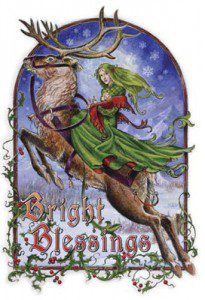
Many things unknown, and unwished for, nor ever attempted by our minds, are manifested to us in dreams, also the representations of unknown places appear, and the images of men both alive and dead, and of things to come are foretold; and also things which at any time have happened, are revealed, which we knew not by any report; and these dreams need not any sort of interpretation, which belong to divination.
The voice is that of the Renaissance magus, Henry Cornelius Agrippa von Nettesheim (1486-1525). In his Three Books of Occult Philosophy he is clearer on what is going on in dreams than much of later Western psychology. He knows that in dreaming, we see beyond the senses, and travel beyond body and brain into the immensity of nonlocal mind, where all knowledge is available.
He insists that to work with dreams we need “strength of imagination” (to receive images with clarity) and “strength of understanding” (to grasp how to use them).
He identifies certain types of dreams and visions that are most likely to be “true”:
– those that are “made between sleep and waking”
– those in which the dreamer observes others from a witness perspective
– those that are interpreted inside the dream itself
– those that are repeated
“That dream is most sure,” he counsels, “which is concerning those things which one did meditate on, and revolve in his mind, when he goeth to bed.” Thus he recommends rituals to put the mind in the right frame to go dreaming on a certain agenda, and to attract the interest and support of spirits who may engage with the dreamer.
He gives interesting directions for making an image to encourage true dreams:
Let there be made an image of dreams, which being put under the head of him that sleeps, makes him dream true dreams, concerning everything that he hath formerly deliberated of; and let that figure be that of a man sleeping in the bosom of an angel…Thou shalt write upon the breast of the man the name of the effect desired, and in the hand of the angel the name of the intelligence of the Sun.
I like the idea of setting out to dream in the arms of the angel.
The magus discusses some of the challenges familiar to psychic dreamers. If you dream a future event, how can you be sure of when the event foreshadowed will take place, since the time lapse between a dream and its manifestation varies widely? He offers a kind of Catch-22 from rabbinical tradition, that “no prophetical vision can be held from its effect longer than twenty-two years.”

